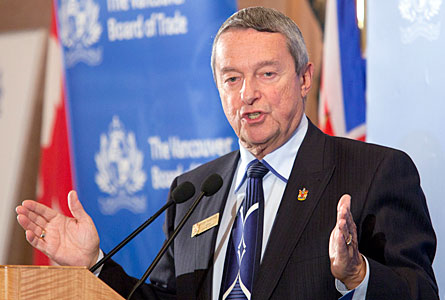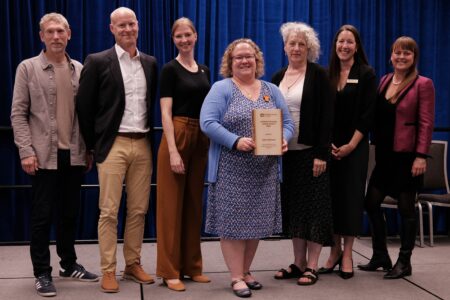BCTF too far from affordability zone for mediation
Minister of Education Peter Fassbender issued the following
statement Saturday following the decision by mediator Vince Ready to leave talks:
“Today veteran labour mediator Vince Ready determined that the parties are too far apart for mediation at this time.
“I’m very disappointed for students, parents and teachers. What should be a time of excitement and anticipation will instead be marked by frustration and uncertainty.
“I wish I could tell British Columbians when students will be back in school. But right now, I don’t see any quick or easy solutions.
“Everything we’ve tried to do was to have schools open on time and to reach a settlement. Unfortunately, the BCTF leadership has stubbornly refused every effort to reach a fair deal and they have even refused to give teachers a chance to vote on suspending the pickets while an
agreement is mediated.
“Negotiating a settlement requires union leaders to stand in front of their members and explain what has been achieved at the bargaining table. I worry the BCTF leadership is actually counting on government to legislate an end to this strike so they can avoid having a difficult
conversation with their members about what is realistic and achievable.
“Legislating an end to the dispute is the wrong thing to do. It would only keep us on the same dysfunctional treadmill that we’ve been on for the past 30 years. As hard as it is, we have to stand firm and hope the union leadership comes around to getting serious about negotiating a fair agreement.
“In the meantime, I want to encourage the BCTF leadership to canvass their members about temporarily suspending their pickets so schools can open and teachers can go to work.
“The gap is much bigger than what the BCTF has been making it out to be, which was that the parties were close on all matters except class size and composition. Over the past few days, it’s been a very different story behind closed doors.
“The union made no substantive effort to get anywhere near the zone on wages and benefits. Their moves were so small that their compensation demands remain nearly double what 150,000 other B.C. public-sector workers have settled for. They even insist on a special $5,000 signing bonus that no one else received.
“It is wrong and misguided for the BCTF leadership to expect a bigger compensation package than all other public-sector workers simply because they are willing to shut down schools.
“Their demands would plunge B.C. into deficit. No mediator can bridge that kind of gap.
“There is also a big gulf on how to deal with learning conditions. The British Columbia Public School Employers’ Association (BCPSEA) is offering solutions that focus resources where they can best help students. The union, meanwhile, continues to seek rigid class size
numbers and teacher ratios that only increase the number of teachers but won’t necessarily address the actual learning needs of students in classrooms.
“The BCTF says they want government to be ‘flexible.’ But what they really mean is that they want us to abandon our balanced budget. We are not going to go into debt, we are not going to raise taxes, and we are not going to be ‘flexible’ with our commitment to be fair and even-handed with all 300,000 B.C. public-sector workers.
“We’ve been very clear and consistent ever since BCPSEA tabled its comprehensive offer back in June. The package on the table is fair and reasonable – both in terms of teacher pay and on class composition – and it is very near the limit of what we can afford.
“It includes a six-year term to provide stability for the education system, a 7% wage increase that’s fully in line with increases already negotiated with other public-sector employees, and guaranteed supports for classroom needs through the Learning Improvement Fund.
“BCPSEA is offering to hard-wire into the contract additional protections on class size, a guarantee of at least $375 million over five years to address complex classroom needs, a stronger role for teachers in deciding how to spend these funds, and an ongoing fact-finding committee to make sure educators have the best possible information to guide these important decisions.
“We remain willing to explore puts and takes, reasonable moves here and there. But mediation is not going to shake loose tens of millions of dollars – let alone hundreds of millions – that we simply do not have.
“A prolonged strike is not going to change the basic fact that best possible deal for teachers is a negotiated agreement that falls in the same affordability zone as all the other agreements already negotiated with more than 150,000 B.C. public-sector workers.”

























